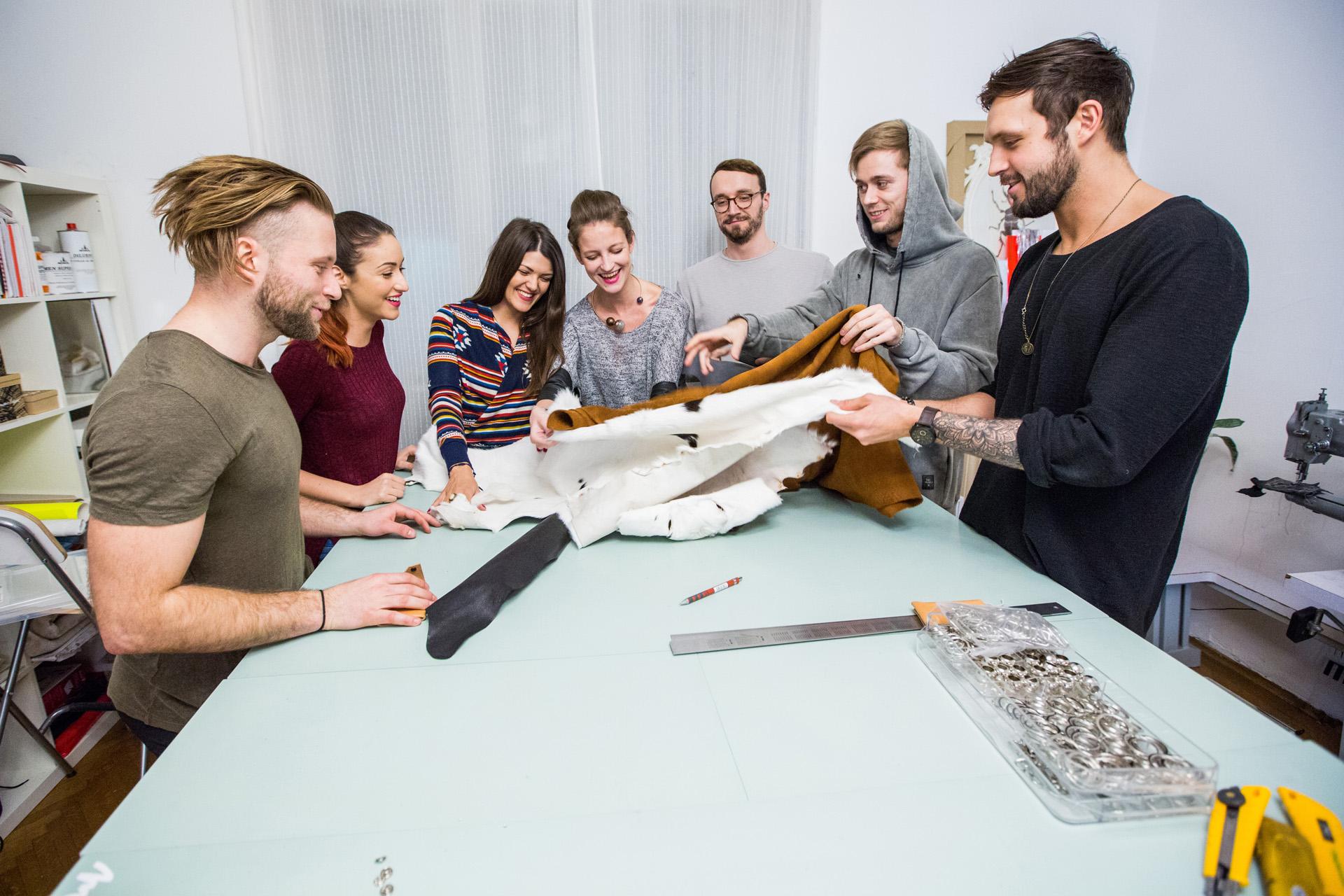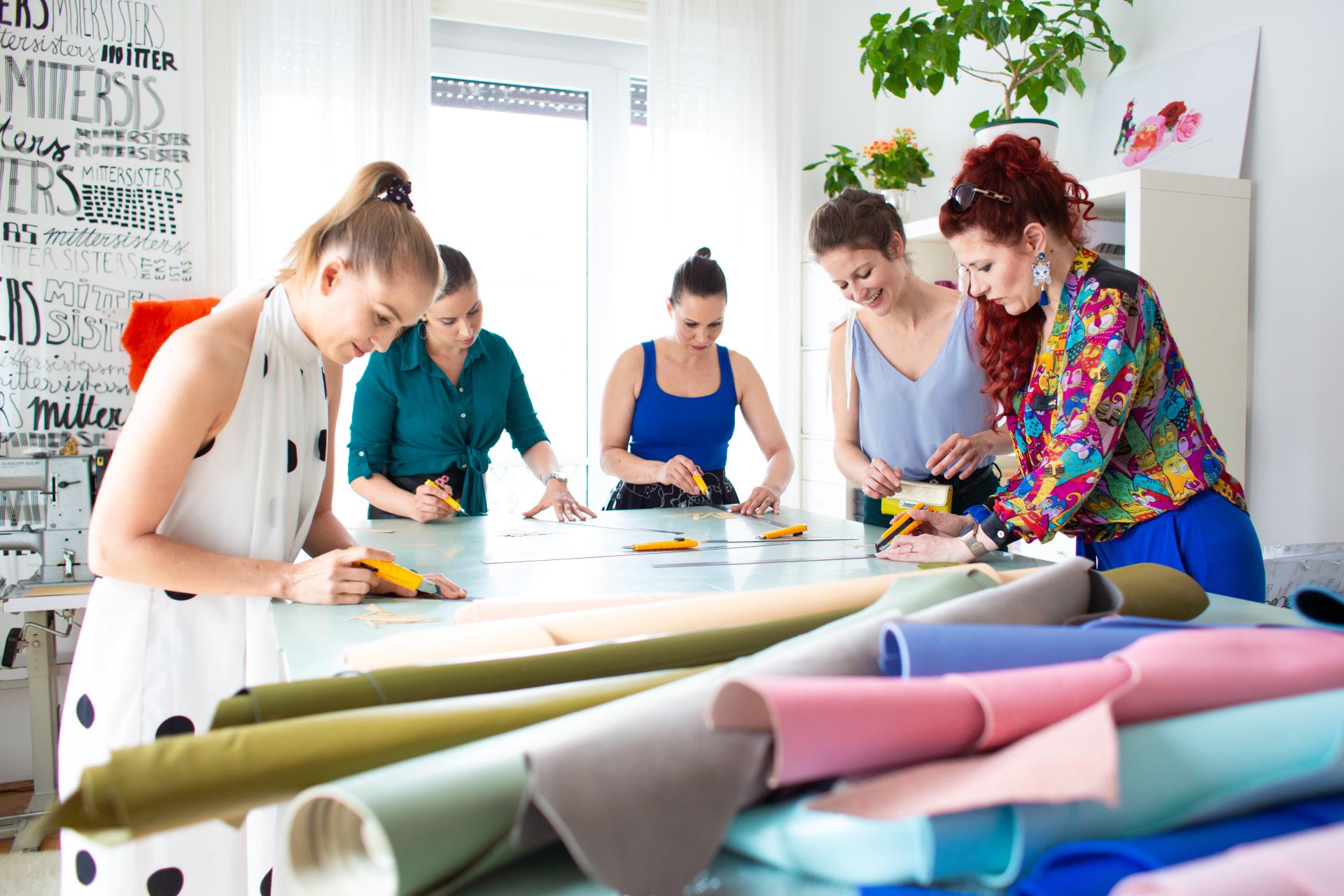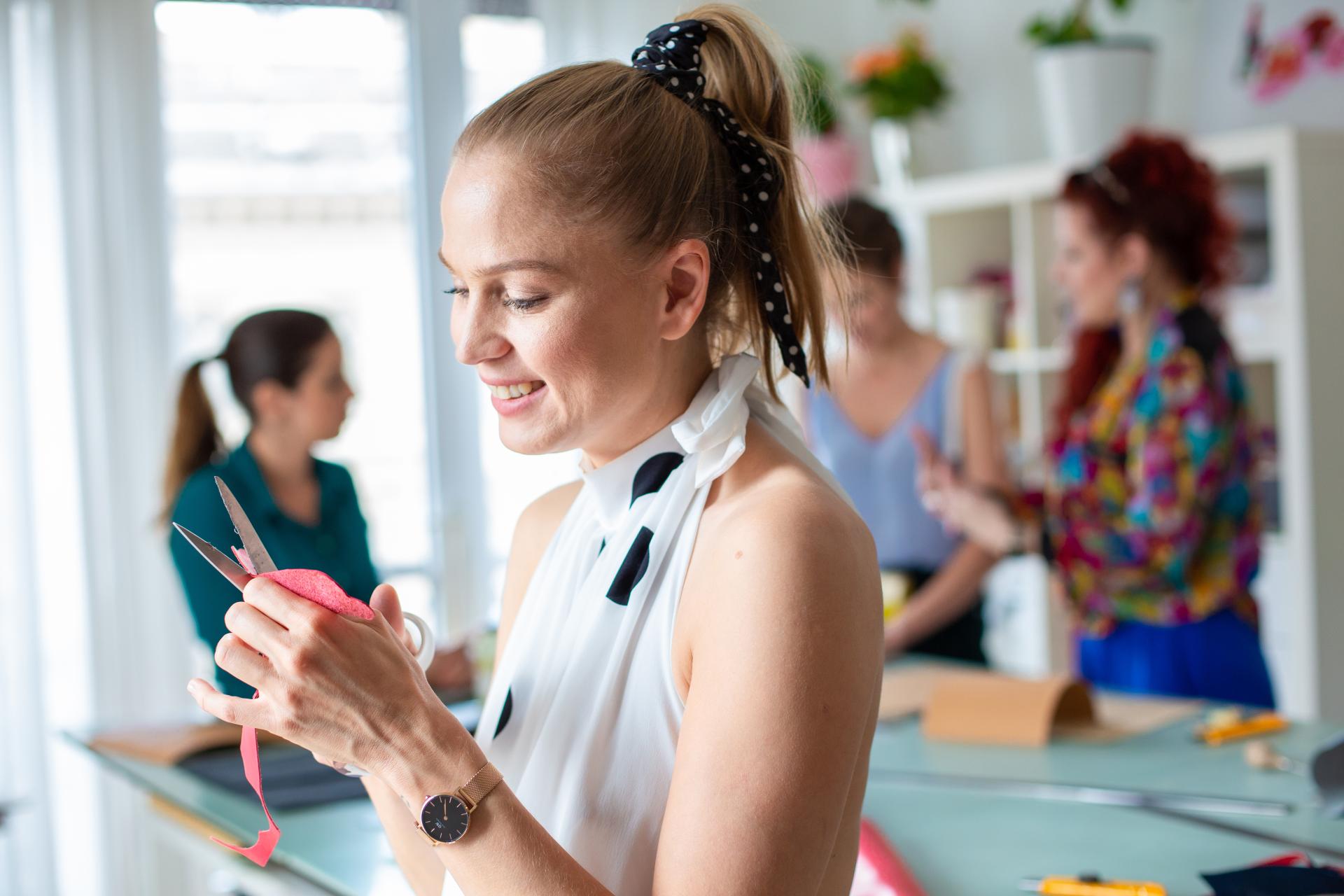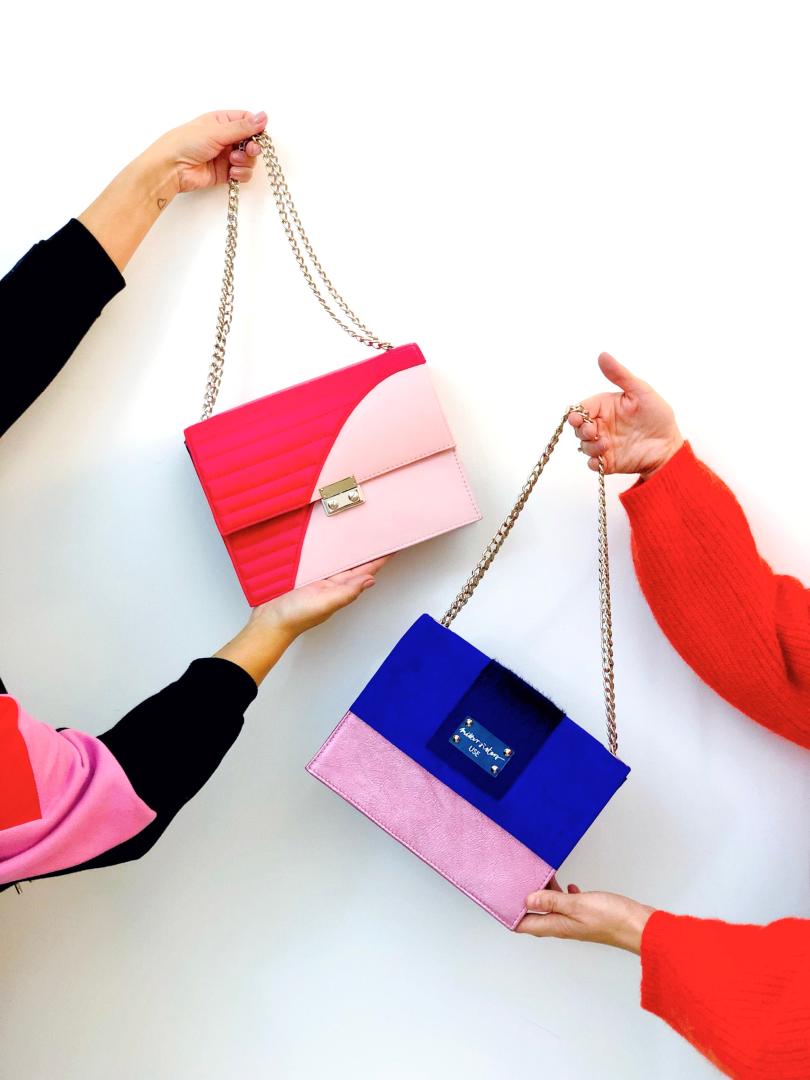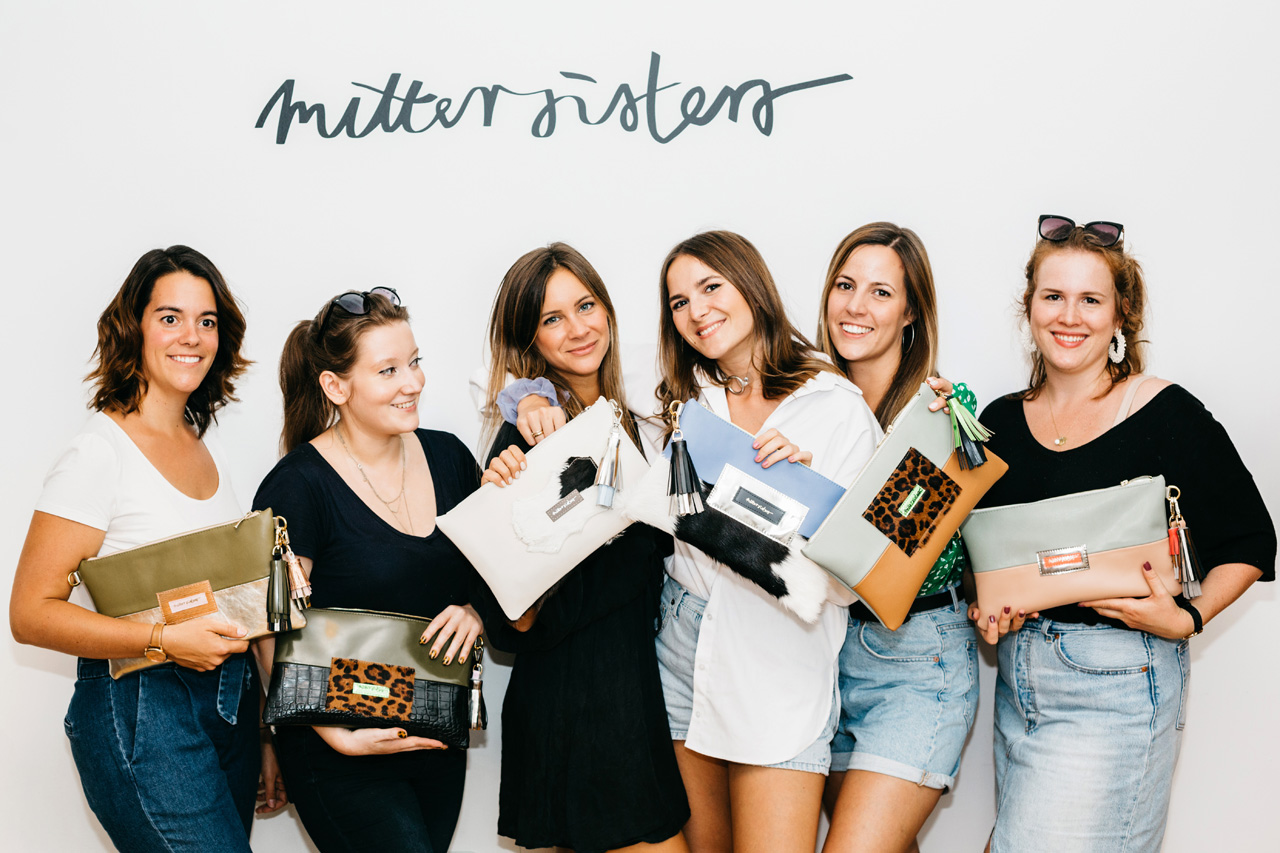Mittersisters - DIY Bag Workshop
Basic information
Project Title
Full project title
Category
Project Description
'Mittersisters' was the idea of Roza and Viola, sisters who wanted to promote sustainable fashion. Deciding on bespoke leather handbags, they set about sourcing raw materials and machinery. In 2016, they started to offer one-day workshops: start with a piece of leather, and end with a unique fashion item.
The project looked at the viability of turning a passion for design into a sustainable business. It's been difficult but successful, and the next step will be to rent a store-front property.
Geographical Scope
Project Region
Urban or rural issues
Physical or other transformations
EU Programme or fund
Which funds
Description of the project
Summary
We started our Mittersisters workshop project for two primary reasons: to create unique, personalized handbags; and to raise awareness of 'slow fashion' and how it promotes sustainability. And, of course, the ultimate aim of the project was to turn this passion into a viable business.
In today's world, 'fast fashion' is limiting our sustainability. Many high street fashion stores, perhaps because of squeezed profit margins, are stocking cheaply-made items designed to sell fast. Consumers buy them, wear them a few times, then throw them out. The waste generated is vast, and increasing year by year.
At our workshops, clients experience all that's required to make a truly-personalized piece of fashion. They cut, fold, glue, and stitch every part; and whilst doing so, they get a feel for just how much work it takes to make an ordinary object like a bag. But, by putting in this effort, they produce a bag that's a true expression of their personal style. It won't be thrown away. This is what we mean by 'slow fashion': the benefits of owning well-made, long-lasting items become part of a lifestyle.
We work exclusively with leather, which we source only from ethical suppliers. It's challenging to ensure that the hide is used with minimum waste, so we've developed a very efficient cutting style. As a result, over 85% goes to making the bag, larger remnants are used for accessories, and the smallest pieces are recycled to the local handicraft community.
We proudly boast that "anybody can make a bag - no special skills required!", so our workshops bring together people from all walks of life. As in the quilting circles of old, they soon form a community of mutual support: swapping ideas as they share their new design and crafting skills. As a result, powerful bonds are formed, and many of our clients are now firm friends. Since starting the project, we have introduced slow fashion and sustainability to over 8,000 people from over 40 different countries.
Key objectives for sustainability
Circularity starts with efficient design, and our first step was to source raw materials as locally as possible. For example, we use ethically-sourced leather from within the EU, which has the highest standards for leather production. Our hides come from animals raised for their meat, meaning they're a byproduct from another industry. These hides would otherwise be burnt or end up as a landfill, so we ensure that minimal resources are wasted.
When we started our project, the "Who Made My Clothes" initiative was gaining traction throughout the industry. Consumers were taking an interest in where fashion was being made, and who made it. Well, at Mittersisters, the bags are made from start to finish in Hungary, and the person who makes them is you! No other workshop in Hungary provides the opportunity and teaches the skills to design a bespoke, personalized leather handbag from start to finish. In this, we are unique.
Our clientele is truly international - from over 40 countries - many from places where leather workshops are unheard of. This presents a further business opportunity, so this summer, we are meeting with the Escuela de Organizacion Industrial in Madrid to discuss franchising our workshop: first in Spain, and then throughout the EU. For us, this is an excellent opportunity to promote slow fashion and the eco-benefits it offers.
Roza, who owns the Mittersisters business, has studied and worked with leather for 16 years, so leather was the obvious choice for our workshop. Leather is long-lasting, safe, durable, and easy to clean. It can be repaired, reused, and remade multiple times, promoting circularity. Our efficient cutting method and remnant recycling ensure 100% of the hide is used, thus avoiding any waste of raw materials. And, of course, it looks great!
We aim to show that "better quality, less quantity" fashion need not cost a fortune and results in a lot fewer 'throwaways'. For many of our clients, this is the first step to a sustainable life.
Key objectives for aesthetics and quality
Aesthetics are very personal, especially when it comes to fashion. Once a client has decided which type of bag they want to make, the styling is entirely up to them. We are, of course, on hand to offer advice, such as which techniques work with which finishes to give the best results.
With over 100 colours and textures to choose from, and more than a dozen leatherwork techniques, the basic combinations are almost infinite. Once they realize they have free reign, many clients reveal a hidden artistic streak! The final touch is to add some metal accessories (clasps, studs, chains, etc.) and perhaps a leather bow. However they choose to decorate it, we see a client's bag as a true representation of their own style. We know they will use it and treasure it for a lifetime.
We're proud of our Hungarian heritage, and we still teach some of the old techniques. However, the aesthetic of the work environment is critical, so our workspace is very colourful, with rolls of leather on display and sample handbags lining the walls. In addition, we're small enough to react quickly to changes in technology, so if a client wants an ultra-modern design: we're ready!
Whilst they're working, we gently educate our clients about the meaning of slow fashion. We discuss how some bad practices could easily be made more sustainable, highlighting advancements in circular manufacturing. Because they're involved in creating something from start to finish, our clients quickly identify with the main ideas of circularity and sustainability. As a result, many have gone on to make small but effective changes to their shopping habits.
Although our workshops teach skills and techniques, it's the experience that clients remember most. Not only do they end the day with a designer handbag they've made themselves, but they'll also leave as friends. We're pleased to say that some people, although strangers when they met, often re-book as one large group, eager to share the same experience again.
Key objectives for inclusion
As we said earlier: we proudly boast that "anybody can make a bag - no special skills required!" Our clients age from 6 to 76; male and female. From the outset, our environment is one of inclusiveness. Rather than being spread around the room, our clients all work around the same large cutting table. We've found that working alongside others - even total strangers - soon forms a mutual bond. The atmosphere is friendly and supportive: with everyone working as a team towards a common goal.
Everybody is encouraged to work at their own speed and develop their own bag as they see fit. Because of this, there's never any pressure to make the 'best' bag, and we've removed any awkward sense of competition.
Our universal design templates are relatively easy to follow, making our workshops ideal for those not so nimble-fingered. We can help with the 'fiddly bits', but the colouring and decoration will always be decided by the client. And as the majority of the workshop takes place around one large table, there's no strain on those with reduced mobility.
We've run workshops for schools and summer camps for kids. We've also managed on-site events for commercial businesses, often to audiences of 200 or more. In addition, we offer free workshops for foster children, and we are trying to arrange a fun workshop for Ukrainian refugee children who are arriving in Hungary in more significant numbers every day.
Although our workshops provide something individual and unique, we have not priced them for only the wealthy. For example, a one-day workshop to make a large handbag costs 60,000 HUF per person, which is roughly 150 Euros.
Results in relation to category
We launched our Mittersisters project in 2015, and since then, the company has come a long way. At first, we ran pilot schemes with friends to determine the best structure for the workshops. Our first commercial efforts were comparatively limited, but now the range of Mittersisters workshops is varied and diverse. We've listened to our customer feedback, and we've now spent many years fine-tuning our workshop formats.
Initially, it was hard to attract customers, as the majority of people that we canvassed had never heard of fashion workshops. They were also sceptical: they didn't believe that they could produce such a quality product with no design experience. Many clients had doubts about their skills and abilities, and it took the manufacture of hundreds of quality leather bags before we gained the trust of our customers.
However, in our second year of trading, over 70% of our workshop attendees came through word-of-mouth advertising. We also had the chance to work with some of Hungary's large corporate clients, including Mercedes Benz and Samsung. This raised awareness of our brand, and, equally as important, it was an excellent opportunity to spread the idea of sustainability.
Today, Mittersisters can proudly say that we have shared the ideas of slow fashion and creative thinking with over eight thousand people. Through our unique style of interactive workshops, we strive to educate our customers about the small steps they can take to change their daily habits and to live a healthier and more sustainable life.
Customer feedback is one of the most critical metrics for companies in the service industry, and we study and react to every comment. But our favourite feedback is from the clients who used to be big fashion consumers but changed their shopping habits after the workshops. There are a lot of clients who have made such a change, and happily, the list grows longer every day.
How Citizens benefit
Mittersisters was designed to be a commercial venture. As such, there was no involvement by local citizens or civil society in the design or implementation of the project.
Physical or other transformations
Innovative character
We are surrounded by everyday objects such as clothes, furniture, and cars. And although we live in a world where we have access to practically everything through a single click on our smartphones, we have a minimal understanding of how these objects are made. We use these things every day, but have little or no knowledge of how much time and effort is needed to realise them.
The business model of most fashion companies is focused on high consumption: they are not educating their customers about the ecological footprint left by their manufacturing processes. But because Mittersisters is inherently sustainable, one of our main strengths is the ability to innovate. Change starts with the consumer; we actively educate our customers about how their behaviour can make a difference.
We wouldn't class ourselves as part of a counter-culture, but in some ways, our ethos is the exact opposite of the most prominent fashion brands. We are a business, and we do sell fashion, but we also offer an overall experience where we share a new point of view about the value of an everyday item like a handbag.
Once people have attended one of our workshops, our greatest wish is that they never look at a simple handbag again without appreciating the time and hard work that went into making it.
Learning transferred to other parties
Our Mittersisters project was set up to assess the viability of turning a passion for fashion into a profit-making enterprise. After an initial eighteen months or so of zero profit, our project started to generate an income. Unfortunately, the restrictions imposed due to Covid effectively shut us down, and it's been a struggle to regain our customers. But, slowly and surely, our bookings are increasing, so we consider the project a success. Our business model has been validated, and we are currently in talks with strategic partners with a view to franchising.
We would be happy to share the benefit of our experience with any small start-up facing the same challenges that we encountered. In fact, this has already happened: in November 2021, Roza had the honour of representing Hungary at the Crafts Code Interreg Europe seminar in Madrid.
The Crafts Code project (https://www.interregeurope.eu/craftscode) is an EU initiative that aims to enhance the competitiveness of craft SMEs by developing a framework to stimulate policy learning, and build capacity to improve the implementation of regional development policies and programmes. Roza was asked to present a session concerning 'good practice for sustainable business'. She shared her innovative and sustainable business model with 400 participants and built new business connections with a view to future partnerships.
Sharing our results and showing the best practices for sustainable business is one way in which Mittersisters is helping to shape a circular industrial ecosystem and support life-cycle thinking.

